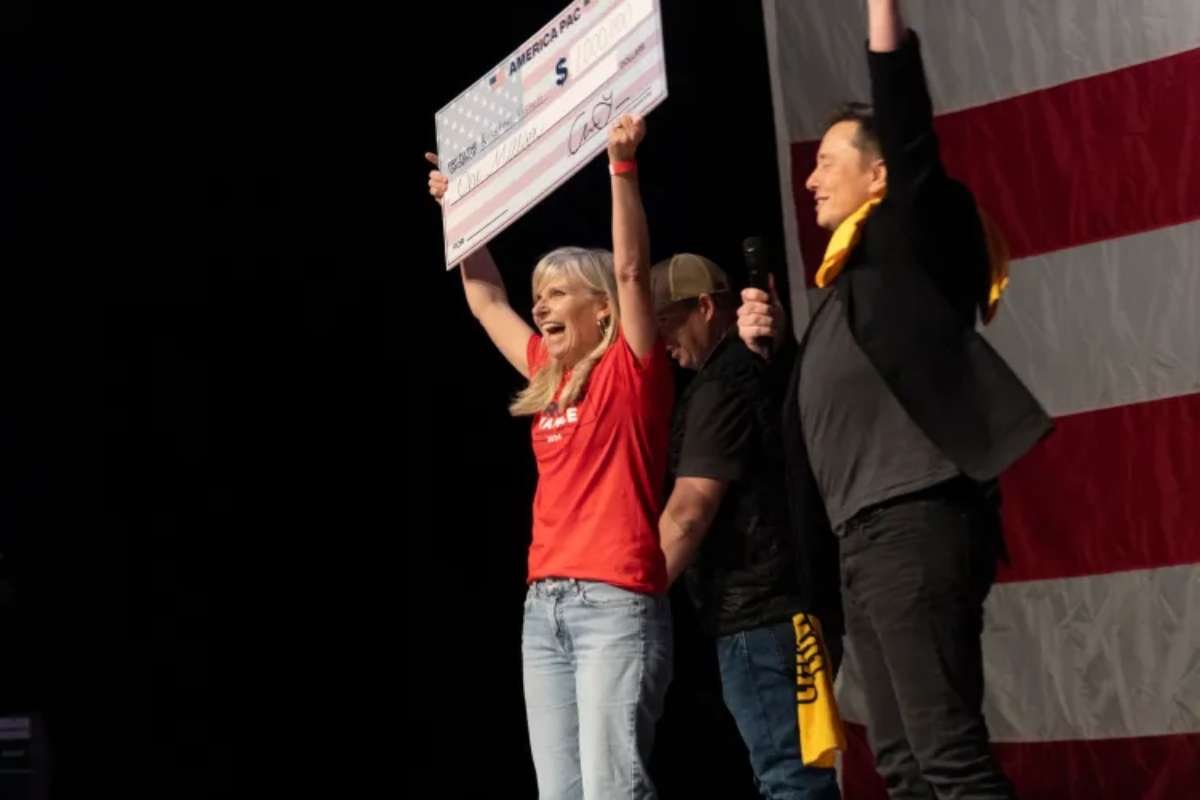Elon Musk, through his political group America PAC, has launched a controversial initiative offering cash rewards to voters in key swing states ahead of the U.S. presidential election on November 5. Musk’s group, which supports Donald Trump, is offering significant financial rewards, including $1 million to one random voter each day who signs a petition supporting free speech and the right to bear arms. The petition specifically targets voters in swing states like Pennsylvania, Michigan, and Georgia.
While the petition is positioned as supporting the First and Second Amendments, legal experts are raising concerns about its legality. The offer of cash incentives to voters, especially in states like Pennsylvania, where individuals are being given $100 for referring others, is under scrutiny. Critics argue that these incentives might violate U.S. election laws, which prohibit offering payments in exchange for registering or voting.
Although the Federal Election Commission (FEC) and the U.S. Department of Justice have yet to comment, several legal scholars have pointed out that the offer could be illegal. According to Paul Schiff Berman, a law professor at George Washington University, the scheme likely violates electoral laws, and participants could face penalties if it’s proven unlawful.
Mixed Opinions on Legality
The legality of Elon Musk’s offer has divided experts. While some argue the scheme crosses legal boundaries, others suggest it may fall into a legal grey area. Brad Smith, a former chairman of the FEC, noted that Musk’s campaign is not directly paying individuals to register to vote, but rather to sign a petition. This, he argues, might technically keep Musk within legal limits, though he acknowledges the situation is ambiguous.
However, critics like Michael Kang, an election law professor at Northwestern University, believe the context of the incentives indicates that the aim is to encourage voter registration through financial means, which makes it legally questionable. Adav Noti from the Campaign Legal Center also emphasized that federal law prohibits giving money conditioned on voter registration. He warned that Musk’s campaign could face civil or criminal penalties if pursued by the Department of Justice.
Democratic politicians have also weighed in, with Pennsylvania Governor Josh Shapiro calling the initiative “deeply concerning” and urging law enforcement to investigate. Elon Musk responded dismissively, expressing surprise that such concerns were raised.
Musk’s Growing Political Role
Elon Musk’s involvement in American politics has grown considerably in recent years, particularly through his financial support for Republican candidates and causes. While Musk once had a contentious relationship with Donald Trump, his current support for the former president’s 2024 bid is evident through America PAC. The PAC has received at least $75 million in donations from Elon Musk, further solidifying his political influence.
Musk’s offer of cash rewards has drawn comparisons to past Democratic initiatives, such as Mark Zuckerberg’s 2020 donations. However, Zuckerberg’s contributions were used to support logistical efforts in voter registration rather than direct payments to individuals. Musk, in contrast, is directly offering large sums of money to petition signers, an unprecedented move in American politics.
As the election approaches, the controversy surrounding Musk’s incentives continues to grow, with many waiting to see if the FEC or other legal bodies will intervene.


















